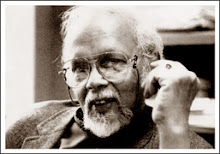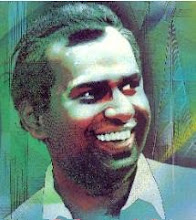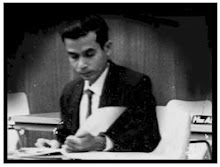Q: After you were appointed as the chairman of the Sinhala drama panel we know that you proposed a comprehensive plan for the successful completion of the state drama festival in 2003. However, your overall plan ended in limbo due to the disputes, disagreements and the unfair decisions favoured by the panel of judges at the drama festival. Could you comment on that?
A: Yes, I agree that the state drama festival in 2003 did not happen as expected. Actually, the previous drama festival was planned on a provincial and school level. Our aim was to deviate from a Colombo centered state drama festival to a national level, by organising drama competitions in various parts of the country.
We even discussed this national oriented plan with the cultural circles of the provincial councils and other artistes around the country. The Cultural Ministry provided the necessary facilities for these discussions. Thus we were able to make a comprehensive, national level plan for the improvement of stage drama and its artistic appreciation, specially among the school children as well as the youth throughout the country.
Q: So, what happened to those plans?
A: First of all we have to understand the pathetic situation within the state drama festival itself. It has sown the seeds of hatred, division, unethical competition and I must say a 'sort of addiction' to win awards among the dramatists. Having observed this unhealthy situation, we methodically planned to improve the standard of Sri Lankan drama as a true art for human development.
Hence, we didn't want to limit ourselves to just a drama festival in which only stage dramas are shown. Our plan included seminars, lectures, exhibitions, workshops and other alternative programmes on stage drama. We even hoped to organise street dramas in the evening. This is why I say that it was a comprehensive programme.
However, our plan did not become a reality due to many problems. The main problem was the lack of funds. What we got was just sufficient to continue the drama festival but not our novel scheme. As the chairman of the drama panel, I am very dissatisfied with the failure to implement our comprehensive plan. Actually, there is nothing that we can be happy or satisfied about the previous state drama festival either.
Q: Is it true that what happened to the Sinhala drama panel happened to the Tamil drama panel also?
A: It's very true. I must say the crisis situation in the Tamil drama panel was worse. Tamils, being the second highest ethnic group in Sri Lanka, even the awards ceremony of the drama panel in 2002 was not held. However, the Sinhala drama panel had the courage and determination to hold both the state drama and the awards festival continuously, even in a critical and crisis situation. That is the reason we propose to combine Sinhala, Tamil and Muslim drama sections into one unit and hold a truly 'National Drama Festival.' Both the Tamil and the Muslim drama panels have agreed to the idea. I assure you that it if I am the chairman in 2004 I shall attempt hard to make that suggestion a reality.
Q: The main duty of the Sinhala drama panel is to hold the state drama festival annually. What is the purpose of having a Sinhala drama panel if it is unable to do this?
A: Yes, we are also raising the same question. The Arts Council is a constitutionally approved council by the parliament of Sri Lanka. But this council has no independence or ability to act on its own. Recently, there was a newspaper report that the Sinhala drama panel and its officials are like tombs. We have to accept that it is correct. If the only objective of the Sinhala drama panel is to organise a state drama festival there is no use of having a drama panel.
Q: The funds which are annually allocated for the development of stage drama by the government were recently slashed. It was expressed by you that even the money set apart was spent for the state functions and celebrations according to the dictates of the ministers. Could you tell us the actual situation regarding the allocation of funds?
A: For the smooth functioning of the Arts Council alone the estimated budget was 2.4million. It is the council that proposed the budget allocation for all the panels to the government. This time the total estimation of the council is Rs. 8.2 million. For that amount what was approved was a mere Rs. 2 million. Even from that amount the Arts Council was given only Rs. 1.7 million. From that Rs. 1.7 million, Rs. 800000 is spent on salaries, incentives, telephones and other needs of the council. Only a mere Rs. 900000 is spent on the expenses of the 13 panels. So can you now imagine the amount of money that the drama panel obtains for the improvement of Sinhala stage drama?
Q: The Minister of Cultural Affairs has expressed recently that the chairman of the Sinhala Drama Council has been given all the civil powers to raise funds for the state drama festival from the sponsors and that is your responsibility to do so. Is it just to put the responsibility on you?
A: It is totally unjust. I can give you an example to prove my point. The former minister of cultural affairs directly acted by giving a letter addressed to the Insurance Corporation for sponsorship in 1994. It is true that as I was in the field of stage drama, cinema and drama that I have the ability to get sponsorship. But just think, what would happen if a person who is not capable of it became the chairman of the Sinhala state drama panel. What would have been his situation? The other point is why should I find sponsorship? In any country it is the government that sponsors drama and art.
I would like to raise a question to the Minister and other officials of the government. There is a peace process in this country. The three common words that they use in the peace process are social, economic and political growth. But in this peace process the word 'culture' is not to be found. At least the peace programme "Yali Pubudamu Lanka" or "Regain Lanka," does not use the words culture. However, we learn that cultural revival is essential for true development of a country. What has the Ministry of Cultural affairs done for this revival of culture as part of the peace process?
I became the chairman of the Sinhala drama panel to do a meaningful job for the betterment of Sinhala drama and in a broader sense to give life to the idea of the National Drama Festival in Sri Lanka. I emphasize this point to you, that we are not here to whitewash the sins of the politicians. The minister says that he would increase the funds from 2 million to Rs. 2.5 million this year.
Just think for a moment the huge sums of money that these elite politicians use for their vehicles. It they give the money of at least two cars to the Arts Council we will be able to do a lot in the field of stage drama.
I must say that during the time of President Premadasa, he initiated a plan to contribute one rupee from each ticket of the Lotteries Board for the development of the Tower Hall Foundation. But sadly, nobody after him had that kind of concept regarding drama and art in this country.
Q: The Nomads ground was taken over by the government to build a centre for drama and art and it became a controversial issue. It was reported that the government had secured financial aid to start this project. What is the present situation?
A: The Ministry of Cultural Affairs bought this land and its building to construct an arts and cultural complex. It was also discussed during the time of the previous government. As far as we know there is an agreement signed between the government of China and Sri Lanka. When we question the government they say it is progressing. But we don't see any result. Even artistes are silent about it.
Q: As a person who maintains a healthy relationship with other artistes why can't you unite and force the government to start this project?
A: We have been talking about this since 2000. Through the drama organisation called TAG Lanka we tried to plan a common programme to gain our rights. That was like frogs making noises when it rains. When the state drama festival is around the corner our artistes and dramatists make a fuss about it. Once the festival is over they forget about the whole thing. We are not truly united. The so called professional artistes who totally depended on stage drama at the beginning of their careers should also help in this situation. It is time for us to be truly united to overcome this selfish attitude.
Q: You were appointed to safeguard and to improve Sinhala drama and its cultural heritage. But in this crisis situation is it correct if I say that you have come to a point in which you are unable to protect even yourself?
A: No, not at all. Nothing will happen to me. I sincerely want to work for the improvement of Sinhala drama. Personally, I don't want to gain anything out of this.
Q: Are you going to challenge the system while being the president or do you have any idea of resigning?
A: I am still here. There are others in the panel who value my opinion. We have to decide, as members of the panel, what we should do in future.
We have to focus on two things. Firstly, whether the Ministry of Cultural Affairs is ready to carry out our comprehensive plan. Second, whether our dramatists and the other artistes who are directly involved in Sinhala stage drama have the will power and determination to forgo their selfish desires and to be truly committed to the well being of Sinhala stage drama.
Our success depends on these two issues.
Finally I must state again that I am very depressed about the pathetic manner in which the previous state drama festival was held.





































No comments:
Post a Comment